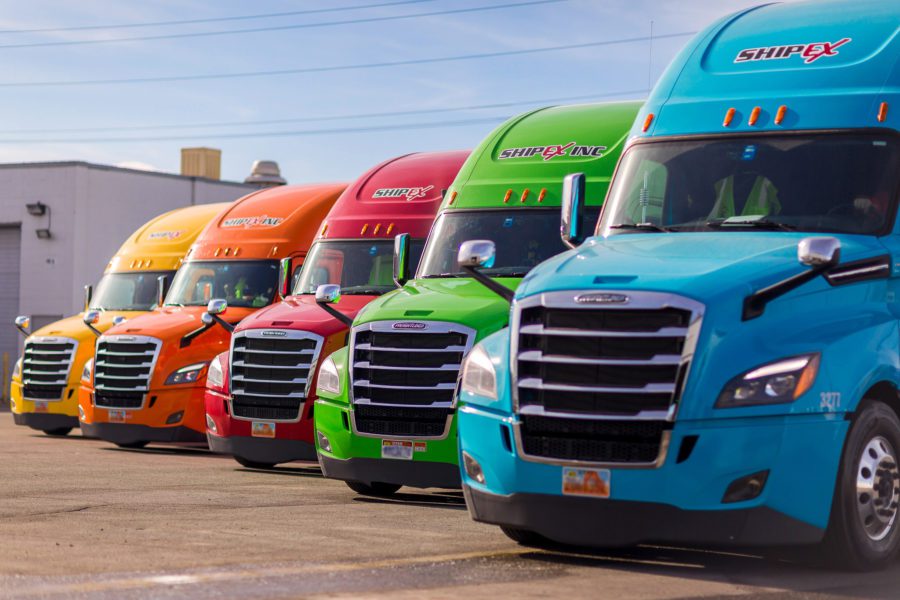Introduction
The Federal Motor Carrier Safety Administration (FMCSA) is a key part of the US Department of Transportation. The FMCSA is all about road safety and commercial motor vehicles. They help ensure trucks and buses are operated safely so everyone has safer roads.
The Federal Motor Carrier Safety Administration (FMCSA)
The FMCSA’s main job is to keep safety by enforcing regulations that prevent crashes, injuries, and fatalities involving big trucks and buses. The FMCSA sets standards for driver qualifications, vehicle maintenance, and hours of service (HOS) to keep our highways safe and goods moving.
Founded in 2000 the FMCSA was created to address safety issues in commercial motor vehicle operations. They reduce risk by enforcing strict safety standards and conducting regular inspections. This has resulted in a significant decrease in crashes and fatalities involving commercial motor vehicles (CMVs), safer roads, and a more reliable transportation system.
FMCSA’s Mission: Safety and Compliance First
The Safety Measurement System (SMS) is a tool used by the FMCSA to monitor and measure the safety performance of motor carriers. It uses safety data from inspections, crash reports, and compliance reviews to identify and address safety issues. By analyzing this data the SMS assigns scores to carriers based on their safety record and identifies high-risk operators. This allows for specific action to be taken to ensure carriers maintain high safety standards and comply with regulations.
The Compliance, Safety, Accountability (CSA) program is designed to improve road safety by focusing on specific safety areas. These areas include driver fitness which checks the qualifications and health of drivers and hazardous materials compliance which ensures the safe handling and transport of hazardous materials. The CSA program helps carriers improve their safety practices, reduce the likelihood of crashes, and comply with federal regulations. This isn’t just about road safety – it’s good for drivers too. Carriers with good CSA scores are considered lower risk by the authorities so that means fewer roadside inspections and more time on the road.
FMCSA Regulations for Truck and Bus Companies
Hours of Service (HOS)
Electronic Logging Devices (ELDs) prevent driver fatigue by automatically recording driving time so rest periods are adhered to. By enforcing HOS compliance ELDs reduce the risk of fatigue-related incidents and overall road safety. Along with ELDs getting a Commercial Driver License (CDL) requires meeting FMCSA standards.
Knowledge and Skills
Along with ELDs getting a Commercial Driver License (CDL) requires meeting FMCSA standards. Drivers must pass both knowledge and skills tests including pre-trip inspections, basic control skills, and on-road driving, and meet specific medical and physical requirements.
Vehicle Maintenance
Regular vehicle maintenance and inspections are required for commercial vehicles. Routine checks identify potential issues before they become major problems and ensure our trucks are always in working order. Regular inspections and maintenance ensure our fleet meets safety standards and keeps our drivers and the public safe on the road.
Enforcement and Safety Performance
The FMCSA works with local enforcement agencies and safety groups to conduct roadside inspections and safety audits. This collaboration ensures commercial vehicles comply with federal regulations including driver qualifications, vehicle maintenance, and HOS. By partnering with local agencies the FMCSA can use additional resources and expertise to make inspections more thorough and effective. Public complaints are helpful in maintaining safety standards and accountability. The FMCSA encourages the public to report unsafe practices as these complaints identify potential safety issues that regular inspections might miss.
Educational Initiatives and Targeted Safety Improvements
The FMCSA sends educational messages to higher-risk carriers and the overall motor carrier industry. This includes webinars, workshops, and online materials to improve safety practices and reduce risk. The goal is to make sure all carriers especially those identified as higher risk have access to the knowledge and tools to operate safely. The FMCSA uses behavior and safety data to tailor its educational programs and improve safety across the industry. By looking at trends and identifying common safety issues the FMCSA can create targeted initiatives to address specific problems.
FMCSA’s Overall Impact and Partnerships
The FMCSA works with state governments, organized labor, and transportation safety organizations to balance safety with motor carrier operations. One example of this is the FMCSA’s partnership with state governments on the CSA program which has resulted in safer standards. The FMCSA also works with transportation safety organizations on initiatives like the “Share the Road” campaign which teaches truck drivers and the public how to drive around large vehicles. This has resulted in fewer crashes involving large trucks and buses.
Final
The FMCSA is the safety foundation of the motor carrier industry, setting standards and enforcing rules to keep our roads safe. We can do it together, truckers and FMCSA. Act now – get trained, follow FMCSA regulations, and participate in safety programs. Let’s be safe.







